Last Updated on March 26, 2024 by Admin
Google Business Profile, previously known as Google My Business, offers a free, straightforward way to manage your business details. By setting up a profile, you’re giving your business a chance to shine on Google Search and Maps. This can lead to attracting more customers.
But there’s a trick to boosting your visibility even further: incorporating relevant keywords into your business profile. This strategy can significantly enhance your business’s presence and direct more local search traffic to your website.
In today’s blog post, we’re diving into the best practices for weaving keywords into your Google Business Profile. Ready to get started? Let’s jump in!
How to incorporate keywords into Google Business Profile?
Below, we have listed where you should add keywords to your Google Business Profile:
#1. Add keywords to your business description
Adding keywords to your business description helps Google and people searching on Google better understand what you offer and who you serve.
Include relevant keywords smoothly in your description and avoid overusing them. This makes sure your description is relevant, clear, and useful. A great description will have the following:
- What do you offer?
- What sets you apart?
- Your history
- Anything else that’s helpful for customers to know
Below is an example of a florist in San Diego:
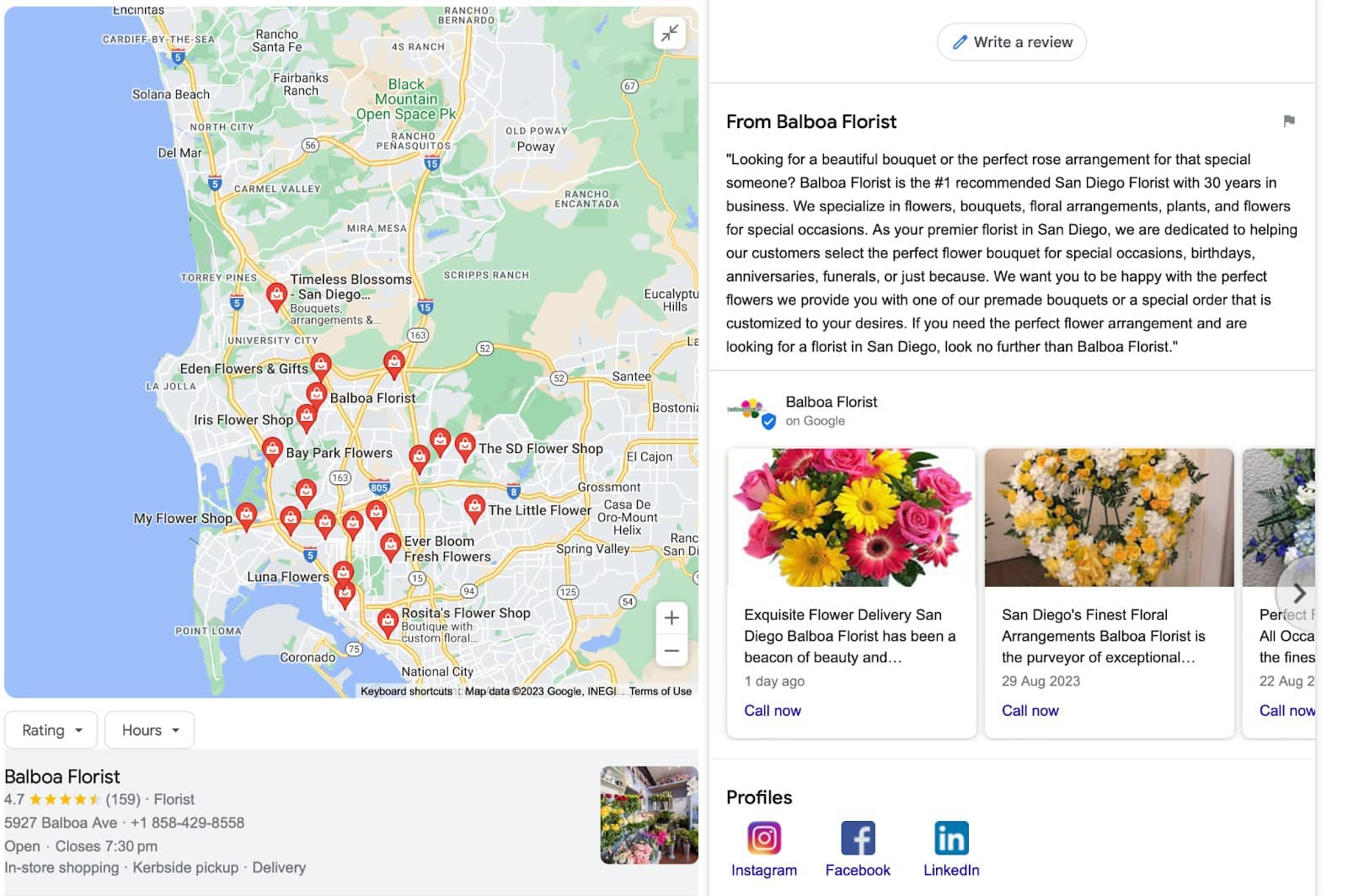
On your Google Business Profile, find the ‘Business information’ window. Click on the description field.
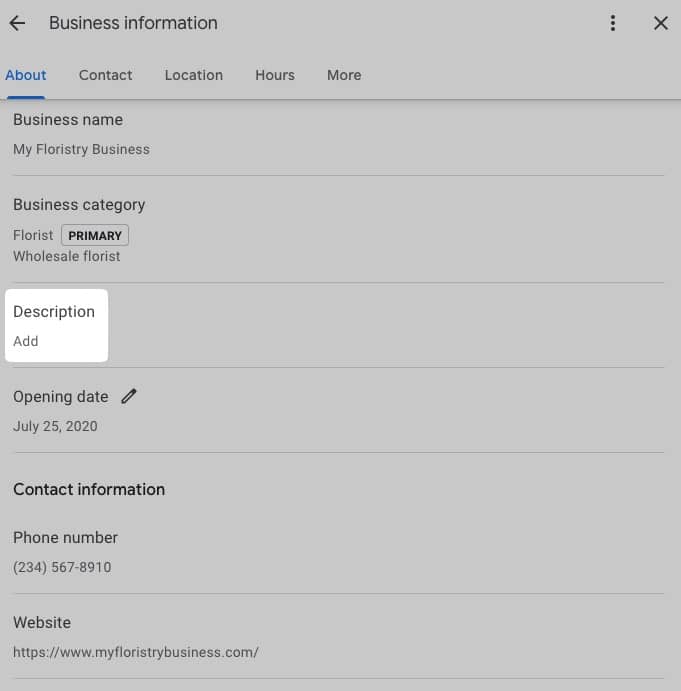
Type or paste your business information using the specific keywords you want to include. When done, hit ‘Save’.
#2. Add keywords to your business categories
The main keyword in your Business category should accurately describe what your business does. This helps direct the right people to your business.
For instance: Example: If you run a bakery specializing in organic bread, your Business category could be ‘Organic Bakery’ to attract customers looking for natural baked goods.
You can visit the Business information window again and click on ‘Business Category’ to add a relevant keyword.
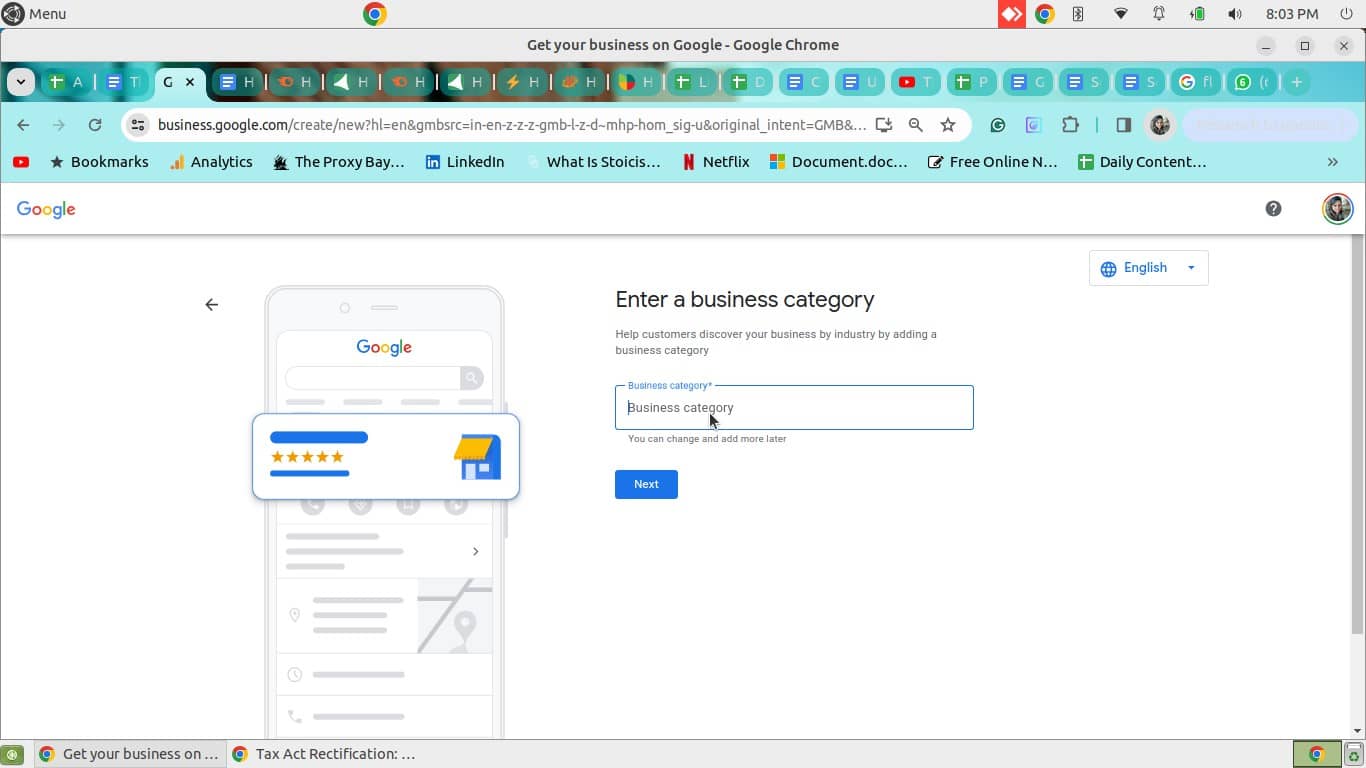
You can add more relevant keywords to your business category by clicking on ‘+ Add another category.’
This approach increases the chances of your business being discovered by people using various search terms.
After finalizing your list of extra categories, click ‘Save’ to update your profile with the new information.
#3. Add keywords as business attributes
Adding factual attributes to your profile makes it more likely your business will show up in your target customers’ search results. Factual attributes are like little snippets of information that tell people what your business offers or features.
For example, they can tell customers if your restaurant offers the option to dine under the stars with outdoor seating, or if your store can bring purchases right to their doorstep with delivery services.

To add factual attributes for your business, find the ‘Your business on Google’ menu. Select ‘Edit profile.’

Then on the ‘Business Information’ page, select ‘More’ from the top row of tabs.

You can add a range of attributes, from seating and delivery options to payment methods and amenities.
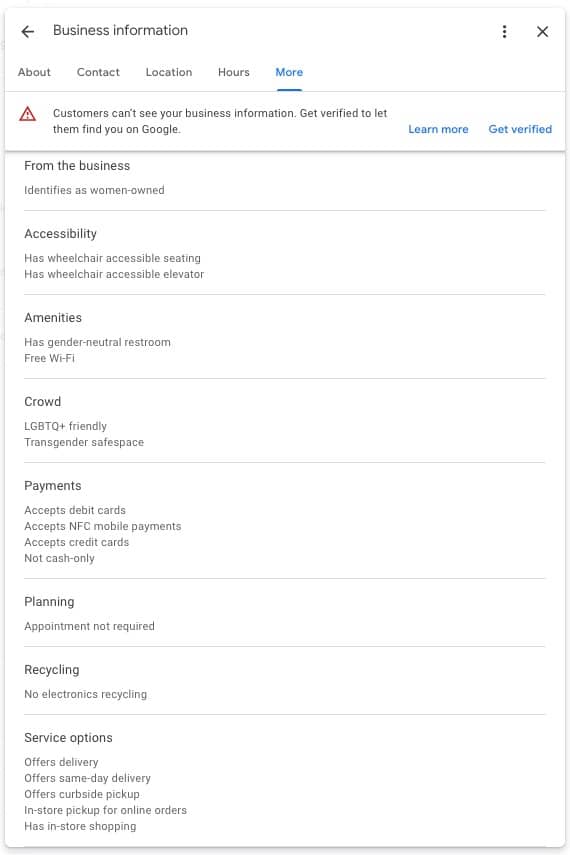
Hit ‘Save’ once done to confirm your changes.
#4. Add keywords to Google Business Profile posts
Another smart move is to sprinkle relevant keywords or phrases into your posts in GBP. You’ve got three types of posts at your disposal: offers, events, and what’s new updates. Aim to keep these posts concise and catchy—ideally between 80-100 characters—and try to place keywords near the start of your message.
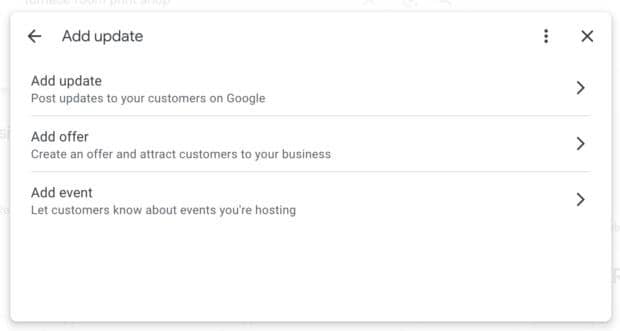
Refreshing your Google Posts regularly can also boost your client’s visibility in search results. These posts tend to appear high up on the SERP (Search Engine Results Page). By incorporating keywords, you’re essentially giving your client’s business a leg-up, helping to steer local traffic their way.
#5. Add keywords while responding to questions and answers
Making a habit of responding to questions in your GBP is key. This isn’t just about managing your reputation; it also shows your customers that you’re attentive and engaged. Plus, here’s a little insider tip: it’s yet another fantastic opportunity to incorporate some keywords into your business profile.
Whenever a customer throws a question your way, you can weave in keywords with your answers in the Questions and Answers section. The trick is to keep your responses sounding natural and ensure that the keywords fit seamlessly into your answers. This way, it doesn’t just help with your SEO efforts but also genuinely assists your customers.
How to research Google Business Profile keywords?
Google’s main aim is to deliver the best possible results to users, so when you use the right keywords, you’re helping the algorithm recognize your business as the top match for those specific terms. Here are a few ways to research the right keywords for your business profile:
- Begin with the local SERP: Just start typing in words related to your client’s business and cover all bases. Google will automatically populate suggestions, which you can then weave into your strategy.
If, for example, you’re conducting keyword research for a coffee shop, consider what potential customers might type into Google when looking for one: “coffee,” “café,” or “coffee shop near me.” These suggestions can guide your keyword choices and help you target what people are actually searching for. - Use keyword research tools: For more advanced keyword research, you can explore keyword research tools. These platforms can provide deeper insights and can be integrated with your website’s SEO strategy for better results.
You can start with research with Google Ads’ Keyword Research Planner. This tool helps you build on the initial keywords you’ve brainstormed, offering new suggestions and variations to explore as you go along.
- Do competitor research: Another strategy is to keep an eye on your main competitors to identify which keywords they’re employing. If your goal is to outshine your competitor’s Business Profiles in search results, logically, you’ll want to incorporate similar keywords in your profile as well.
Examine the keywords they use and the attributes they’ve included in their profiles. This insight can guide you on how to refine and optimize your client’s listing more effectively.
Final thoughts!
To effectively add keywords to your Google Business Profile, make sure everything you write is accurate and relevant. Describe your business, services, and any posts clearly and concisely. Make sure the main keyword reflects what your business is all about, and add additional keywords throughout to spotlight what you offer and where you’re located. In case you need help with keyword research and optimizing your Google Business Profile, it’s advisable to contact a digital marketing agency like AlgoSaga. Get in touch with them today!
